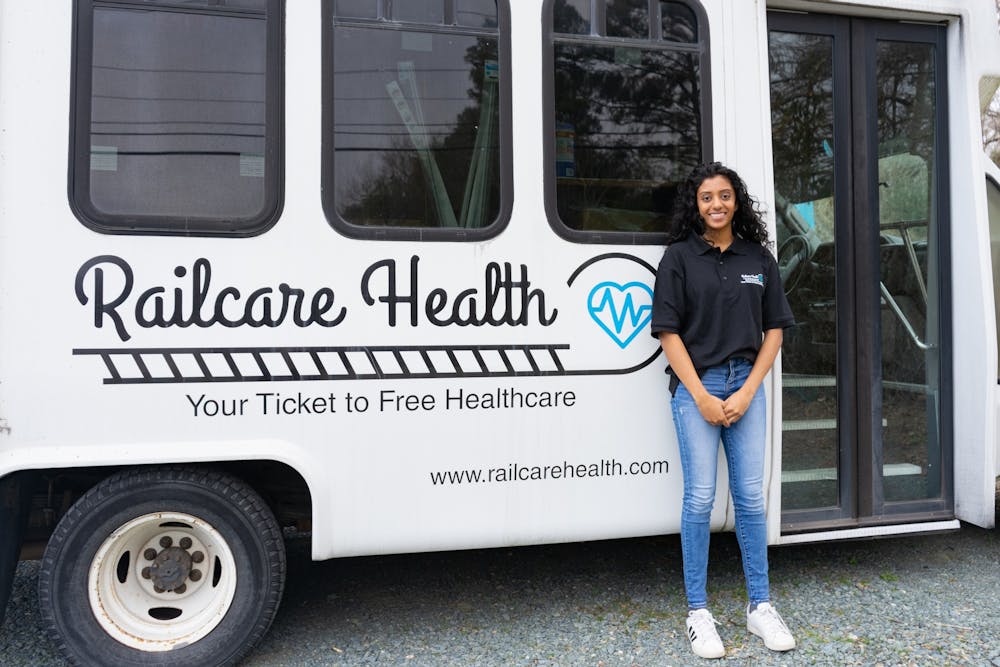While taking the train to visit family, Kathy Minardi often saw pieces of abandoned train cars on the way. It led her to wonder if those materials could be used for good.
Minardi told her grandson, Kevin Travia, a medical student at East Carolina University.
“The idea was to take one of these abandoned train cars, buses or things she saw on the side of the rails to repurpose it for some of the communities she would either see on the railroad going through rural America or for various purposes that anyone would need,” Travia said.
That idea became the foundation for Railcare Health, a nonprofit organization that operates mobile health clinics in shuttle buses, providing free health care to underserved communities in North Carolina.
Since Travia founded it in 2017, Railcare Health has hosted clinics in buses that travel from town to town and provide COVID-19 testing and vaccinations, primary care, HIV testing, mental health services and dental care.
Travia said his favorite part is seeing the impact of the organization's work.
“I distinctly remember this patient coming off the bus in tears because we were providing a service that this patient knew was so vital for the community and truly so needed to bring health care to so many people,” he said.
The CEO of Railcare Health, Alekhya Majety, who is a junior at UNC, said she got involved in the organization during her first year.
“During high school, I always tried to work within the homeless community and marginalized communities in general,” she said “I wanted to find a way to expand that in my college experience as well, so that’s why I wanted to get more involved.”



